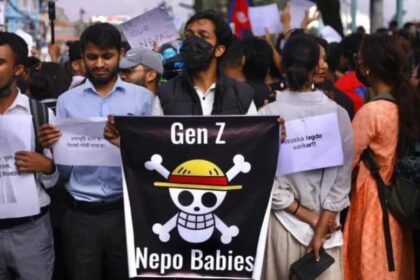Hong Kong’s Bottled Water Scandal: How a Procurement Fiasco Shook Public Trust
In the summer of 2025, a scandal erupted in Hong Kong over a government contract to supply bottled water to public offices. What began as a cost-saving initiative quickly spiraled into a crisis of confidence, exposing flaws in the city’s procurement system, reigniting public distrust of mainland Chinese products, and prompting urgent calls for reform. The controversy has not only led to arrests and contract terminations but has also forced the government to confront deeper issues of transparency, accountability, and public health assurance.
- Hong Kong’s Bottled Water Scandal: How a Procurement Fiasco Shook Public Trust
- How Did the Scandal Unfold?
- Why Did This Happen? Procurement Flaws and Oversight Failures
- Public Distrust of Mainland Products: A Deeper Issue
- Broader Implications: Accountability, Public Funds, and Systemic Reform
- What Happens Next? Investigations and Policy Changes
- In Summary
How Did the Scandal Unfold?
The controversy centers on a HK$52.9 million (US$6.8 million) contract awarded to Xin Ding Xin Trade (XDX), a Hong Kong-based company, to supply bottled water to government offices on Hong Kong Island and outlying islands. For the first time, the government had chosen mainland Chinese suppliers for such contracts, expecting to save over HK$16 million annually across three deals. XDX was to supply water bottled by Robust (Guangdong) Drinking Water, a major mainland brand.
“One particularly troubling detail is the cost of the Xin Ding Xin Trade contract: at over HK$28 per bottle, it was significantly more expensive than other winning tenders for government offices in Kowloon & the N.T., which offered bottled water at HK$23.80 & HK$26 per bottle, respectively” as @langley127.bsky.social reported on Bluesky.
However, soon after the contract was awarded, media reports and civil servants raised concerns about the safety and origin of the water. Some government employees began bringing their own water to work, citing mistrust of mainland products and past safety violations by Robust and other suppliers. The situation escalated when it was discovered that XDX had not sourced water from Robust as claimed, but from a different supplier in Dongguan, using false documentation to win the bid. This amounted to a breach of contract and possible fraud.
Authorities responded by terminating all contracts with XDX and related firms, including chemical and data entry supply agreements worth millions. The married couple behind XDX, Lui Tsz-chung and Chan Pik-lam, were arrested on suspicion of fraud and providing false information. Police linked them to a separate 2022 fraud case, and investigations are ongoing.
Immediate Government Response
In the wake of the revelations, the Government Logistics Department (GLD) and other agencies scrambled to replace the suspect water supplies. AS Watson, a well-known local brand, was tapped to temporarily supply water to affected offices. The government also announced it would deduct a HK$1 million deposit from XDX to recover losses and reserved the right to pursue further legal action.
Christopher Hui, Secretary for Financial Services and the Treasury, admitted to procedural inadequacies and established a task force to review procurement processes. The Audit Commission was invited to scrutinize the tender, and a comprehensive review involving multiple bureaus and the Department of Justice was launched. The task force is expected to deliver preliminary recommendations within three months.
Why Did This Happen? Procurement Flaws and Oversight Failures
The scandal has exposed significant weaknesses in Hong Kong’s public procurement system. Lawmakers, civil servants, and the public have questioned how a company could win a major government contract using false information, and why due diligence failed to detect the deception. The GLD’s reliance on documentation provided by bidders, without thorough verification, has come under particular scrutiny.
According to the 229-page tender documents released by the government in an effort to increase transparency, the evaluation process considered factors such as sample quality, delivery, certification, and production capacity. However, the lowest bid principle often prevailed, and the system relied heavily on self-declarations regarding professional misconduct or prior convictions. In this case, XDX was able to submit forged or misleading documents that went undetected until after the contract was awarded and the water delivered.
Official Apologies and Calls for Reform
Director of Government Logistics Carlson Chan publicly apologized for his department’s oversights, acknowledging that fraudulent elements had slipped under the radar. He promised a thorough review of systems and staff training to prevent future scams, emphasizing the need for greater vigilance and improved contract management.
“There were inadequacies in procedures and I apologize on behalf of the Government Logistics Department,” Chan said, admitting that GLD officers did not detect any forgeries in time.
Lawmakers have echoed these concerns, demanding stricter vetting of bidders and more robust background checks. Doreen Kong, a prominent legislator, insisted that the main issue was not the origin of the products but compliance with procurement procedures and the integrity of the process.
Public Distrust of Mainland Products: A Deeper Issue
The bottled water scandal has also reignited longstanding mistrust among Hong Kong residents toward food and beverages originating from mainland China. This skepticism is rooted in past incidents involving tainted milk, contaminated food, and substandard consumer goods from across the border. The fact that Robust, the brand initially named in the contract, had previously violated safety standards only fueled public anxiety.
When news broke that another supplier, Dongwa, had produced water with excessive bacteria levels in 2023, civil servants and the broader public became even more wary. Some government employees openly questioned the rationale for switching to mainland suppliers, while others took to social media to voice their concerns or share that they were bringing their own water to work.
Market Response: Local Brands Seize the Moment
Amid the uproar, local bottled water brands such as Watsons Water and Swire Coca-Cola (producer of Bonaqua) seized the opportunity to promote their products as safe and trustworthy alternatives. Watsons Water highlighted its rigorous filtration and distillation processes, while Bonaqua emphasized its local production and compliance with international safety standards. These marketing efforts resonated with the public, garnering unusually high engagement on social media and reinforcing the preference for local brands in times of crisis.
Broader Implications: Accountability, Public Funds, and Systemic Reform
Beyond immediate health and safety concerns, the scandal has raised fundamental questions about the integrity of Hong Kong’s procurement mechanisms and the proper use of public funds. Editorials and opinion pieces have stressed that the government, as a major procurer of goods and services, has a responsibility to ensure value for money, fair competition, and accountability.
One particularly troubling detail is the cost of the XDX contract: at over HK$28 per bottle, it was significantly more expensive than other winning tenders for government offices in Kowloon and the New Territories, which offered bottled water at HK$23.80 and HK$26 per bottle, respectively. This discrepancy has fueled suspicions about the criteria used to award the contract and whether the process truly delivered savings for taxpayers.
With some 30,000 bottles already distributed before being impounded, health concerns were understandable, even though subsequent tests showed that the water from all suppliers met safety standards. The government’s swift action to replace the suspect water and review procurement procedures has been welcomed, but many believe more fundamental reforms are needed.
Transparency and Public Trust
To address public concerns and restore confidence, the government released the full set of tender documents and pledged to make the findings of the task force review public. Officials have also promised to enhance due diligence, strengthen contract management, and improve quality control in future procurements.
“At stake is not just the integrity of the procurement mechanism, but also the proper use of public funds and accountability,” noted a leading editorial. “The authorities must fully address all queries and inadequacies as soon as possible.”
What Happens Next? Investigations and Policy Changes
The criminal investigation into XDX and its directors continues, with police and customs authorities working together and not ruling out further arrests. The government is also considering recovering additional losses from XDX and related companies, some of which shared office addresses or had overlapping directors and shareholders.
The task force reviewing procurement processes is expected to deliver interim recommendations within three months, focusing on red flags such as due diligence, contract management, and quality control. Lawmakers and civil society groups are watching closely, demanding that the government not only address the immediate failures but also implement lasting reforms to prevent similar incidents in the future.
Meanwhile, the scandal has become a touchstone for broader debates about governance, transparency, and the relationship between Hong Kong and the mainland. It has underscored the importance of public trust in government institutions and the need for robust systems to safeguard both public health and public funds.
In Summary
- A HK$52.9 million contract to supply bottled water to Hong Kong government offices was terminated after the supplier, Xin Ding Xin Trade, was found to have used false information and sourced water from an unapproved manufacturer.
- The scandal exposed significant flaws in the government’s procurement process, including inadequate due diligence and oversight.
- The married couple behind XDX were arrested for suspected fraud, and all contracts with XDX and related firms were terminated.
- Public distrust of mainland Chinese products, especially food and beverages, intensified as a result of the scandal.
- Local water brands capitalized on the crisis, promoting their products as safer alternatives and gaining public support.
- The government has launched a comprehensive review of procurement procedures, with a task force expected to recommend reforms within three months.
- Transparency, accountability, and the proper use of public funds remain central concerns as investigations and policy changes continue.












